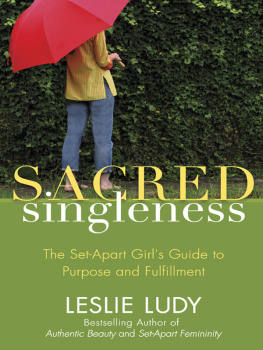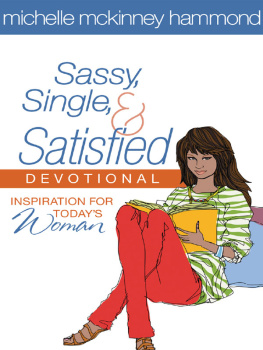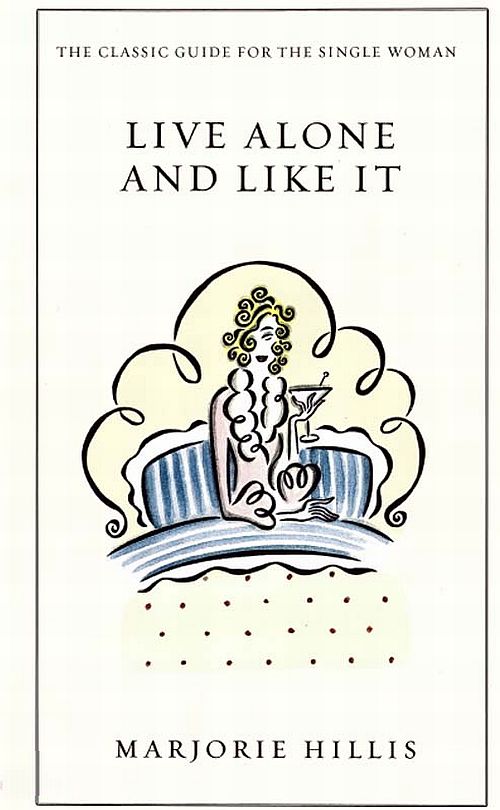Copyright 1936 by Marjorie Hillis
Preface copyright 2008 by Laurie Graff
All rights reserved. Except as permitted under the U.S. Copyright Act of 1976, no part of this publication may be reproduced, distributed, or transmitted in any form or by any means, or stored in a database or retrieval system, without the prior written permission of the publisher.
5 Spot
Hachette Book Group
237 Park Avenue
New York, NY 10017
Visit our website at www.HachetteBookGroup.com
www.twitter.com/grandcentralpub
5 Spot is an imprint of Grand Central Publishing.
The 5 Spot name and logo are trademarks of
Hachette Book Group USA, Inc.
Originally published in the US by the Bobbs-Merrill Company in 1936.
This edition first published in Great Britain in April 2005 by Virago Press, an imprint of Little, Brown Book Group, Ltd.
First eBook Edition: November 2009
ISBN: 978-0-446-57117-3
PREFACE
SEVERAL years ago, I found myself sharing a taxi uptown with two people from a theater workshop of which I am a member. They were discussing the personal relationships of a few we all knew. Discord in general, divorce, drama, and disputes. After the girl told us about her recent breakup, the guy, married, leaned across and asked me whom I lived with.
Charlie. You met him, I said, of my vivacious little Maltese.
He laughed. But no husband or boyfriend? he persisted. Not even a roommate?
I live alone.
My, he said. Thats very brave of you.
I felt surprised, not to mention slightly insulted, by his response. I didnt understand where bravery came in. From a financial standpoint? Manhattan is expensive. From an emotional one? Thus far, the cab conversation was hardly an endorsement for relationship bliss.
Brave? I questioned. Just what do you mean?
I recalled the conversation as I read the very first page of Marjorie Hilliss deliciously saucy 1936 bestseller, Live Alone and Like It. And two things became clear.
First, that, for the most part, no matter what we say, widowhood aside, living alone is a choice. In fact, Marjorie says, It is infinitely nicer than living with too many people (often meaning two or more others) or with the wrong single individual. Second, that Live Alone and Like It is as relevant now as it was then.
When first published, the book was brazenly subtitled A Guide for the Extra Woman. Although we are too politically correct to use the term Extra Woman now, I do feel that it is honest. A woman living alone in todays society may be routine, but most often her status is viewed as temporary, until she meets a man to marry. A twenty-something may not often feel like the Extra Woman, but ask one who is still single in her fortiesa woman whose social group has dispersed as friend after friend has been paired off.
This book was written right after America had come through the worst point of the Great Depression, and the author was hardly about to indulge yours. One of the other bestsellers from the vintage of Live Alone and Like It was Margaret Mitchells Gone With the Wind, and if you think Scarlett OHara had no patience for a pity party, just wait till you turn these pages. Anyone who pities herself for more than a month on end is a weak sister and likely to become a public nuisance besides. It is precisely Marjories blatant, arch voice that makes the book refreshing, charming, and scoldingly delightful.
Without ever having read The Secret(imagine that!), Marjorie Hillis knows it is the lady who expects orchids who gets them, while you and I are pinning on a single gardenia. With this in mind, you can figure out for yourself just what youll become with a mental picture of Poor little me, all alone in a big bad world.
However, most women today enter the work force. Independent and liberated, we are fine in the world. We can take care of ourselves and dont need a man. Our freedom has given us choices; we neednt choose to be stuck. But does the choice bring happiness?
Thousands of books attempt to show women howwith affirmation, visualization, diet, exercise, feng shui, prayer, positive energy, therapy, beauty makeovers, Botox, new noses, new wardrobes, and new leases on lifetheyll find love. (Could anyone have imagined the magnitude of dating online?) By preying on peoples vulnerabilities, they sell hope, and its grown into big business of huge proportions. But it also creates unrealistic expectations of love, turning it into a commodity; one that feels harder to find, and still harder to keep if you do find it.
Unsurprisingly, more than seventy years later there are still no manifestos for the single male. No books to guide the Extra Man, that status only catapulting him into a dashing Man About Town, a Swinging Bachelor. The closest monikers for women range from Old Maid to Hussy; Swinging Bachelorette is merely a nice name for a tramp.
The problem of the solitary woman is, of course, infinitely more intricate than that of the solitary male, says Frank Crowninshield, a Vanity Fair editor from 1914 to 1935, in this books introduction. And then the lonely male is an elusive creature, once he realizes that he is being fished for. He is too shy or too cunning to be caught, or else, once hooked, he proves to be so unbelievably dreary that he has to be thrown back again.
A woman, even the most solitary one, could have discreetly enough thrown back a disappointing beau, but with all the social stigmas about divorce, the same was hardly true of a disappointing husband. Women today can leave. Our earning power keeps us financially independent; therefore, when it comes to men, we dont feel forced to settle. But this independence does not replace ones desire to be properly loved. And love continues to mystify.
Meanwhile, theres a limitless supply of books sending women the message that they can be just as happy without marriage. The Single Girls Manifesta: Living in a Stupendously Superior Single State of Mind, The Joy of Being Single, and Living Alone and Loving It are just a few examples. Marjorie makes it clear that her book is no brief in favor of living alone. But she pragmatically states that chances are at some point in your life you probably will.
Admittedly, much of this book is obviously dated, but its basic premise will never go out of style: for successful living alone you have got to decide what kind of a life you want, and then make it for yourself. Marjorie concludes each chapter with cases that track women who have (or have not) followed her advice and show how they fared. It got me taking inventory of a certain liver-alone close to me.
Case XXXI: Ms. G.Ms. G. was raised in Queens. Having grown up with a passion for theater, she became an actress and moved to Manhattan, first living with several roommates before the allure of Los Angeles beckoned. Homesick for the East, $he returned to New York, settling into a not-quite-so-high-ceilinged, quite comfortable apartment of three and a half rooms. It is Chic and Without Clutter, since Ms. G,, subscribing to several home decor magazines, acquired Good Taste, Frequent visitors will comment on its charm, since Ms. G. does entertain often and well. Even on the nights when she is a diner-alone, she prepares delicious meals, beautifully arranged and served on an inviting table.
Ms, G. performs many beauty rituals and goes in for clothes and Style. While she has all the chief properties of a Successful Bedroom, her bedroom wardrobe is in need of the replacement of old T-shirts with new negligees. Having invited men friends to spend the night, this womans Honor is now her own affair. She knows a penny saved and is good with a Budget; unable to afford a maid, she employs a cleaning woman. Blessed with a wide circle of friends and acquaintances, Ms. G. has many passionate interests and hobbies, does community service, and belongs to several clubs, but she can stand improvement in the area of Travel (not enough) and Leisure.










